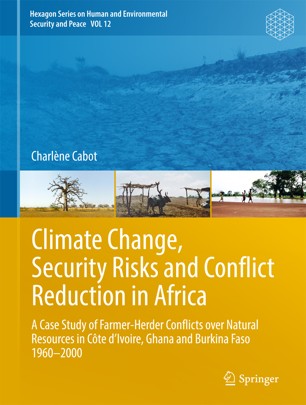Resource information
This chapter is a case study that tests hypotheses in order to determine if political factors can reduce violence in cases of climate-change-induced or -aggravated agro-pastoral conflicts over natural resources. Three West African countries were selected because of their common socio-economic and environmental characteristics and because they host comparable farmer–herder conflicts: Burkina Faso, Côte d’Ivoire and Ghana. The level of farmer–herder conflicts is estimated to have risen between 1960 and 2000 in the three countries. This increase took place against a background of increasing impacts from climate change. The dynamics of farmer–herder conflicts are put into perspective by the study of three political factors: integration policies, land tenure, and decentralized and participative institutions. The determinants for the variation in conflict level differ for each country as do the policies and institutions (although all three countries have somewhat centralized regimes). The evidence that can be drawn from comparison between and within cases (over time) confirms two of the three hypotheses. Across the three countries, lower levels of conflict are found when integration policies are implemented and land rights are distributed equitably between users. Evidence for the last hypothesis is less conclusive: both centralized and decentralized authorities proved able to either fuel or mitigate conflicts. However, participative processes seem to reduce conflicts when implemented in an inclusive manner.


